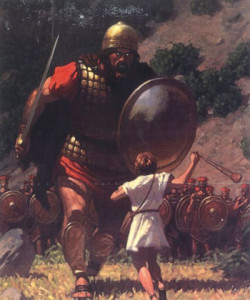 A recent spate of lectures on the supernatural in major Pakistani universities is quite the assault on Reason. The speakers have drawn packed houses on paranormal topics such as jinns, black magic, and glimpses into the afterlife. Pervez Hoodbhoy, in a recent Dawn article, (Jinns Invade Campuses) was correct to lambast these universities as “sheep farms” full of “intellectually lazy professors” who want to breed a legion of submissive students. Indeed, such topics are best left for fireside chats and movie nights and have no place in institutions of higher learning. But, one burning question does remain: is there any basis for the paranormal in the Quran?
A recent spate of lectures on the supernatural in major Pakistani universities is quite the assault on Reason. The speakers have drawn packed houses on paranormal topics such as jinns, black magic, and glimpses into the afterlife. Pervez Hoodbhoy, in a recent Dawn article, (Jinns Invade Campuses) was correct to lambast these universities as “sheep farms” full of “intellectually lazy professors” who want to breed a legion of submissive students. Indeed, such topics are best left for fireside chats and movie nights and have no place in institutions of higher learning. But, one burning question does remain: is there any basis for the paranormal in the Quran?
First of all, to understand supposed paranormal events and creatures mentioned in the Quran, one should carefully review the story of Prophets David and his successor son, Prophet Solomon, to whom much Islamic and para-Islamic literature link with the supernatural. What at face value appear to be paranormal phenomena dissolve into the mundane when examined in the light of History, the Bible, Archaeology, and good old-fashioned Common Sense.
*Note: that the Children of Israel never before or since the time of prophet-kings David and Solomon (10th century BCE?) achieved such majestic power. Perhaps that is why the Quran describes the happenings of this period in rather poetic language:
*For example, we are told that David and Solomon had control over metals:
34:10: “…and we made iron soft (for David)” and 34:12: “We made a fountain of copper flow for Solomon.”
It is notable that the Iron Age began in the Mediterranean shortly before the time of David’s reign and the “fountain of copper” is a reference to a vast mining complex mentioned in the Bible tended to by Solomon’s vassals, the Edomites. Archaeologists only recently discovered the famed Solomon’s mines and confirmed this Biblical and Quranic history. Nothing supernatural here…
*But the Quran does mention that Solomon had control over the wind, does it not?
21:81: “And unto Solomon [We made subservient] the stormy wind, so that it sped at his behest…”
Is this verse anything but a parallel account to the one mentioned in the Bible, II Chronicles 9:21: Solomon’s people sailed to Egypt, and even India and “every three years they returned bringing gold, silver, ivory, apes, and peacocks”?
Solomon’s alliance with King Hiram of the Phoenicians, sailors par excellence of the ancient world, gave Solomon access to superior sailing technology at a time when rowing power was the standard.
*Did not David and Solomon have control of the mountains and speak to animals?
34:10: “O you mountains! establish with (David) the glory of God and so were commanded the at-Taer (often mistranslated as “the birds”…)”
The “mountains” referenced here are most likely the savage mountain tribe mentioned in the Bible called the Amorites, (Amos 2:9) “as tall as cedars, and strong as oaks” subdued by Prophet David.
It is interesting to note that “taer” can mean a “bird” or “fierce horse” in Classical Arabic. Indeed, the Bible 1 Kings, 4:26 describes Solomon’s fierce cavalry, composed of 12,000 horses. Nor does the Quran claim that the ability to communicate with this cavalry was some supernatural gift limited to Solomon alone:
27:16: “Solomon says: “O you people! WE have been taught the speech of at-Taer (the cavalry tribe).”
*What about Solomon speaking to ants?
27:18: “They came upon the valley of An-Naml, The Valley of Ants. An “ant” exclaimed: “O you “ants”! Get into your dwellings, lest Solomon and his hosts crush us.”
These “ants” were actually people, identified by ibn Kathir in his Quran exposition as the tribesmen of An-Naml, located in Syria, who felt Solomon’s powerful army would overrun them. Their queen who pleaded for their safety was Namlat. Their descendants, the An-Namlis, are crawling all over Facebook to this day.
*Did not Solomon control demons (jinn), and did his corpse not continue to preside over them for decades?
34:14, 38:34 (paraphrase): When We decreed death for him (Solomon), nothing showed his death to the jinn until a lowly creature ate away at his staff…and just a mere body was left in Solomon’s place.
The Bible tells us that Solomon’s son, Rehoboam, was the incompetent successor, the “lowly creature” who was as good as a “mere body” on the throne that ate away at Solomon’s power base (the word “asa”, often translated as “staff”, refers to a five-fingered grip, symbolizing a power base, in Classical Arabic). Due to his incompetence, ten of the twelve tribes of Israel split from the kingdom under his rule.
*What of the jinn, who were they?
Surprisingly, the Bible describes them well, too:
The Bible states in 1 Kings 5-6: “70000 laborers, 80000 stone cutters in the mountains” worked for Solomon and built his Temple, and the Quran references these conquered people as “jinn” accomplishing the same tasks (34:12-13).
As stated in the past by notable scholars such as Muhammad Abdu, Sir Syed Ahmed Khan, and G.A. Parvez, “jinn” in actuality are not demons, but rather those normally not seen in the city, “hidden” (jinn from “jannah”, “hidden”) from view of the city dwellers: nomads, outsiders, rural people. They are described as “fiery” in temperament (15:27). The Quranic term, “ins” can mean “mankind” or be limited to “civilized man” depending on context, just as “men” can mean “men” or “men and women”, depending on context. Hence, when “ins” and “jinn” are paired in a sentence, the correct translation would be something to the effect:
7:179: “Our Law has committed to Hell numerous people, rural (jinn) and urban (ins); they are living the life of hell…”
Three verses in particular must be examined closely regarding the “composition” of jinn and ins:
55:15: “Khulaq-al-jaanna mim-maarij-im-min naar,” or “the uncivilized (the jinn) he created with a smokeless fire,” meaning with a “fiery” temperament.
and also see its parallel verse:
21:37: “Khulaq-al-insaanu min ‘ajal,” or “mankind is created from haste”, meaning with a “hasty” temperament.
Hence, neither of these two verses reflects a physical, but rather an emotional constituency.
The following verse references origin of life of ALL mankind and describes a physical composition:
15:26: “And, indeed, We created mankind from sounding clay, out of dark inorganic matter.”
It is notable that the Quran by and large attaches human qualities to the jinn: they dive in the sea (21:82), serve in armies (27:17), will be punished in fire (7:38), can be chained (38:38), make forts, sculptures, images (34:12-13), listened to the Quran in Mecca, became Muslim and taught Islam to their people (46:29), dabble in astrology (72:8), etc.
The few verses about jinn that appear to be supernatural are best understood as either figures of speech or metaphor for the uncivilized part of our nature (what Freud deemed, the “id”), which promotes selfish or evil actions. The Quran does state, as Science has shown, that nomadic, uncivilized people (jinn) predated the civilized ones (15:27). Early communal living with law and order began only after 10,000 BC, in the period known as the Neolithic Era. The tendency for man to fall into selfish temptations, misguided by his uncivilized urges, is described in the extended allegory of Adam and the “jinn”, Iblis (from “bilas”, meaning “regret”). (The allegory is announced in 2:26, three verses before Adam is mentioned: “Behold, Allah does not shy away from citing any kind of allegory, even of an insect. Since the believers exercise reason they know that it is the Truth from their Lord…”)
It is understandable that most readers may take pause at this interpretation. However, one must accept that the mind-numbing beliefs that jinn are invisible creatures which possess people, shape-shift, eat bones and dung, cause a host of ailments, live in holes, ruins, and graveyards, etc. are all decidedly not of the Quran. These myths were amalgamated into Islamic traditions from pagan books of fiction about Solomon written from the 1st to the 10th century CE, the most tasteless and influential of which was the Testament of Solomon (readily available online).
In conclusion, the Quran muses:
4:51: “Are you not aware of those who after receiving their share of the Book (Qur’an) believe in Jibt (the supernatural)…”
and sternly warns against scholars and priests who exploit the gullible masses:
9:34: “A great many religious leaders and scholars devour the wealth of mankind in falsehood, and debar them from the Path of Allah…”
Such is the state of our bright people being fooled by charlatans doing the rounds in otherwise prestigious universities. Time to put the jinn back in the bottle…


